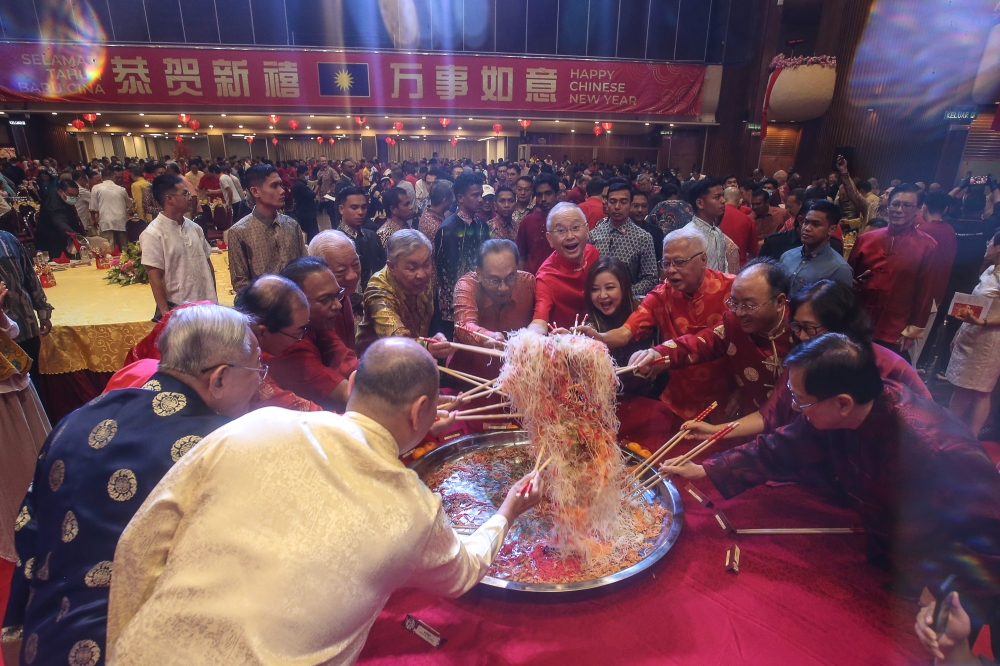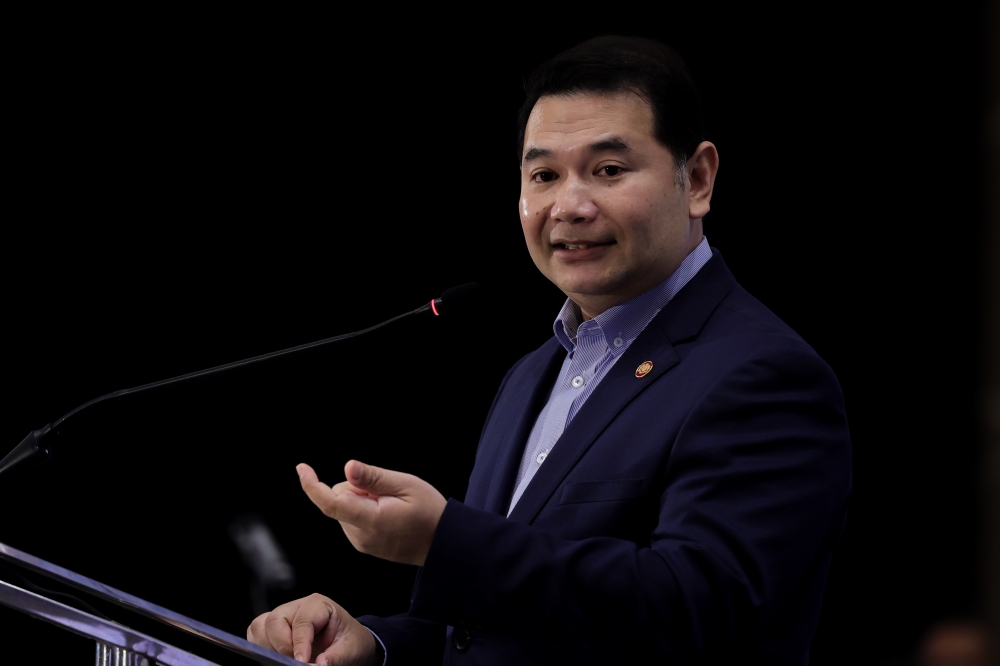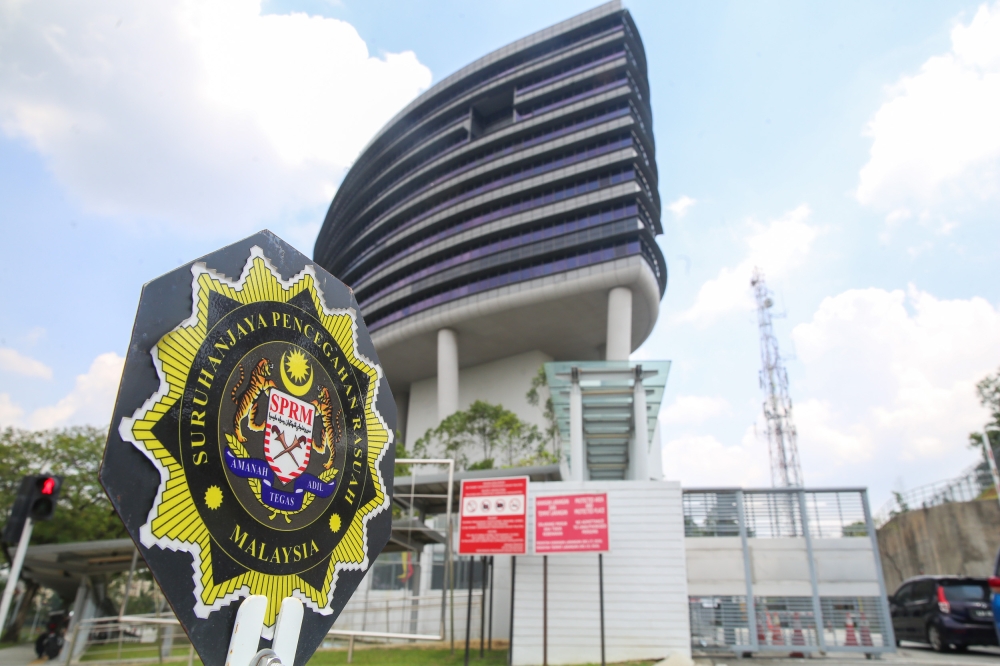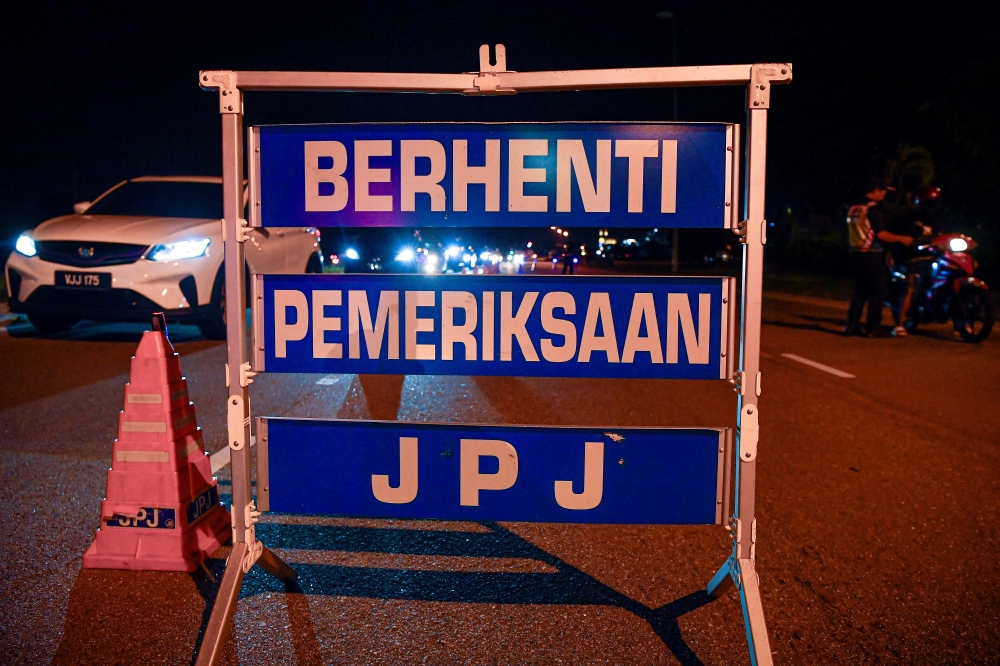PUTRAJAYA, July 1 — The Federal Court today decided that a legal provision which makes it illegal for an organiser to not inform police five days before a peaceful rally — the Peaceful Assembly Act 2012’s Section 9(5) — is unconstitutional and is no longer a valid law in Malaysia.
The Federal Court’s five-judge panel unanimously decided to strike down Section 9(5).
This means that it is now no longer a crime in Malaysia if an organiser fails to give a five-day advance notice to the police of a peaceful rally.
Under Section 9(5), a person who fails to give the five days’ notice commits an offence, and will be fined a maximum RM10,000 if convicted in court.
Chief Justice Tun Tengku Maimun Tuan Mat, who chaired the panel, said Section 9(5) cannot be seen as a valid restriction on the constitutional right to peaceful assembly under the Federal Constitution’s Article 10(1)(b), but that it amounts to a prohibition and also a disproportionate incursion of this right.
“Section 9(5) therefore violates the right to peaceful assembly under Article 10(1)(b) and must be struck down as null and void under Article 4(1),” she said when delivering her decision here.
The four other judges who agreed with the decision are President of the Court of Appeal Tan Sri Abang Iskandar Abang Hashim, Federal Court judges Datuk Nallini Pathmanathan, Datuk Rhodzariah Bujang and Datuk Mohd Nazlan Mohd Ghazali.
What is today’s case about
This court challenge against Section 9(5) was brought to the Federal Court by activist and political party Muda’s former secretary-general Amir Hariri Abd Hadi.
Amir was in August 2022 charged with failing to give the five-day notice of a rally to police and risked being fined up to RM10,000 under Section 9(5).
The Federal Court today made clear that Amir was not seeking to challenge the validity of the Peaceful Assembly Act’s (PAA) Section 9(1) which states the five days’ notice requirement.
Instead, the Federal Court noted that Amir was only challenging Section 9(5), which makes it a crime for an organiser’s failure to give the five days’ notice.
Today, the Federal Court mainly looked at these two provisions in the country’s highest law — Malaysians’ right to hold peaceful rallies and Parliament’s power to restrict this right.
The Federal Constitution’s Article 10(1)(b) guarantees that all Malaysian citizens have the right to assemble peacefully.
The Federal Constitution’s Article 10(2)(b) says the Parliament can make laws to impose restrictions — if Parliament feels the restrictions are necessary for Malaysia’s security or public order — on the right to peaceful assembly. Here’s why the Federal Court struck down Section 9(5)
In reading the brief grounds of her judgment, Tengku Maimun said any law made by Parliament will not be considered valid simply because these laws were made for the reasons under Article 10(2).
Instead, she said there was a need to ensure these federal laws — which would include laws like the PAA — are “objectively fair and proportionate” to the reasons for restricting the rights under Article 10(1).
While the prosecution argued that Section 9(5) is a proportionate restriction to ensure national security or public order, the Federal Court disagreed.
Instead, the Federal Court said Section 9(5) is a “discriminatory restriction that disproportionately curtails the right to the freedom of peaceful assembly guaranteed by Article 10(1)(b)”.
Why is Section 9(5) discriminatory?
The Federal Court said the Section 9(5) offence discriminates against a peaceful rally’s organiser who can be found guilty for failing to give a five-day notice, as compared to participants of the same peaceful rally who will not be committing any offence.
Earlier, Tengku Maimun had noted that only Amir had been charged with an offence under Section 9(5) while no other persons who attended the rally had been charged, and that rally which he had organised was organised as a peaceful assembly and had ended peacefully.
While the entire PAA was intended to preserve the right to peaceful assembly, the Federal Court noted that Section 9(5) meant that an organiser could still be convicted in court even if the assembly takes place and ends peacefully.
The Federal Court then said Section 9(5) appears to be a “blanket prohibition” or total denial of the right to peaceful assembly, instead of a restriction to regulate and still allow the right to peaceful assembly to be carried out.
The Federal Court said it views Section 9(5) as amounting to a prohibition of the right to peaceful assembly, because:
- It would be impossible to organise “urgent assemblies” as it would be impossible to give the five-day notice. “This complete denial of the right to assemble is clearly not a restriction but a disguised prohibition.”
- Failure to give the five-day notice will still be a crime even if the assembly was carried out and ended peacefully. The Federal Court disagreed that Section 9(5) could be seen as linked to the aim of preserving public order and security if a person can be charged for holding a peaceful assembly.
- Criminalising the right to organise a rally, when assemblies often do not happen spontaneously and logically need to be organised.
While the PAA 2012’s Section 21A enables the police to offer to compound the Section 9(5) offence (which means payment can be made instead of being charged) instead of pursuing a criminal prosecution, the Federal Court said it was still up to the authorities to decide whether to charge an organiser.
The Federal Court also pointed out that the police still have the powers under the Penal Code to take action if any rally becomes unruly, unlawful or stops being peaceful.
The Federal Court said the police also still have the powers under the PAA’s Section 20(1) to arrest organisers or participants who refuse to comply with restrictions or have weapons, and also under Section 21(1) to disperse any assembly when there have been participants who commit any crime or acted violently.
Ultimately, the Federal Court concluded that Section 9(5) goes beyond any allowed restrictions under Article 10(2)(b) and also goes against the right to peaceful assembly under Article 10(1)(b).
“We find that Section 9(5) is not validly enacted under Article 10(2)(b). It cannot be deemed as validly restricting the right guaranteed to all citizens by Article 10(1)(b),” she said.
In other words, Section 9(5) is now no longer valid in Malaysia.
The Federal Court also answered one of the two questions of law posed in this case, by ruling that Section 9(5) is unconstitutional as it is inconsistent with Article 10(2)(b) read together with the Federal Constitution's Article 8(1).
Article 8(1) states that all persons are equal before the law and entitled to equal protection of the law.
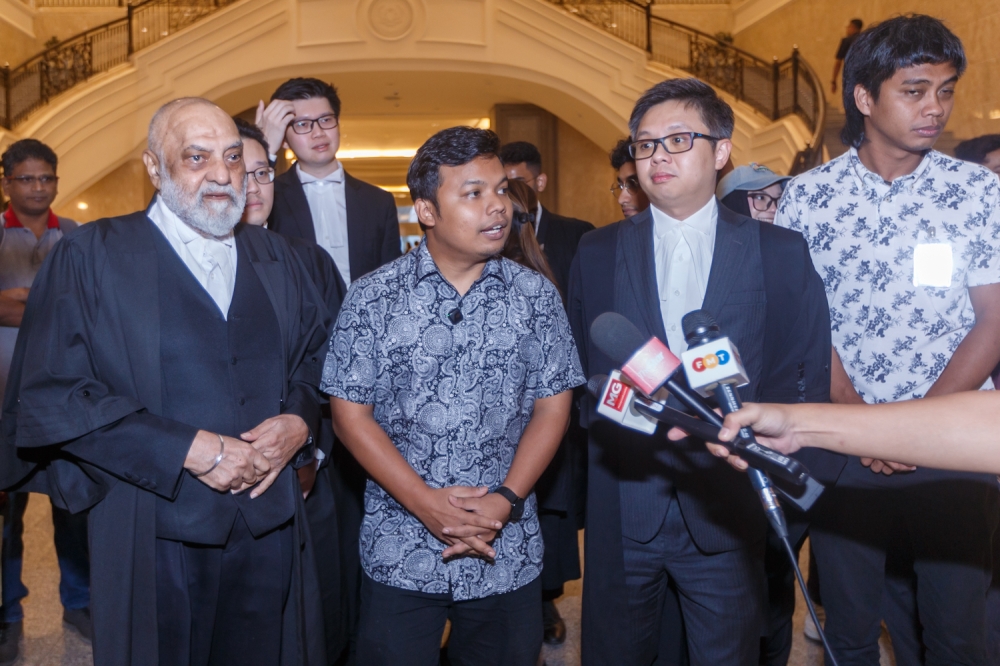
The lawyers who appeared for Amir are Datuk Gurdial Singh Nijar, Abraham Au Tian Hui, New Sin Yew, Vam Shir Mooi, Beatrice Chin Yuen Xin, and Joshua Tay H’ng Foong.
The prosecution was represented by deputy public prosecutors Muhamad Iskandar Ahmad and Siti Rafidah Zainuddin.
Lawyers Anand Raj, Abhilaash Subramaniam, and Cheong Wen Yie for Malaysian Bar represented the Malaysian Bar which was acting as amicus curiae or friend of the court, while lawyers Lim Wei Jiet and Nevyn Vinosh Venudran represented both Suara Rakyat Malaysia and the Clooney Foundation for Justice (CFJ) which were also amicus curiae.
Lawyer Gan Pei Fern held a watching brief for the National Human Rights Society (Hakam).
Following the CJ’s delivery of the decision, Gurdial, Anand, Lim and another lawyer who was present in court for other cases, Raja Eileen Soraya Raja Aman, took turns to offer their appreciation and well wishes to Tengku Maimun and Abang Iskandar.


